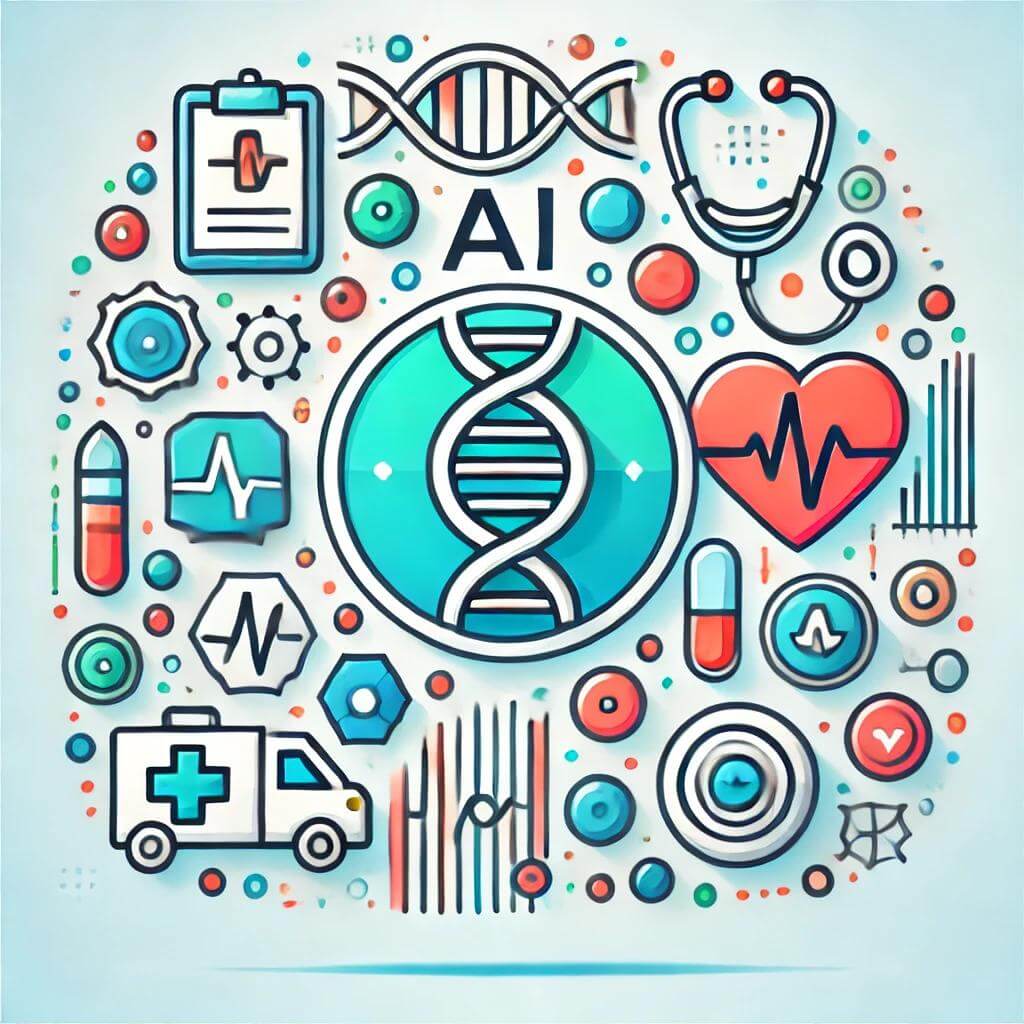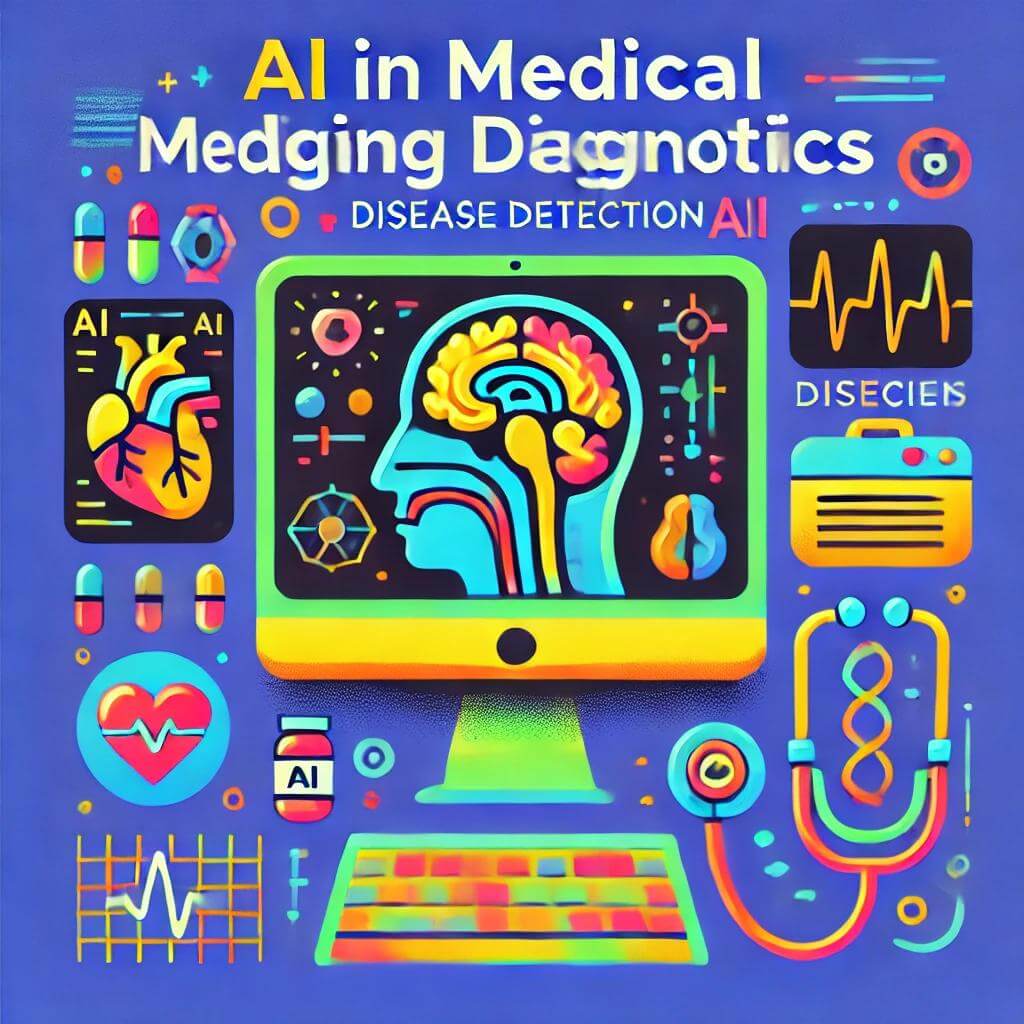AI in Personalized Medicine: Tailoring Treatments to Individual Patients
The concept of personalized medicine has transformed healthcare, aiming to provide treatment plans that cater to each individual’s unique needs. Artificial Intelligence (AI) has emerged as a critical tool in achieving this goal, helping doctors create highly customized therapies. AI analyzes complex data sets, including genetic, lifestyle, and medical history information, allowing for precision treatments that enhance patient outcomes. This article explores how AI powers personalized medicine, the platforms used, examples in precision oncology, and the potential benefits and limitations of this approach.
The Role of AI in Analyzing Patient Data
AI is revolutionizing personalized medicine by analyzing vast and complex data that would be overwhelming for humans to interpret accurately.
Types of Patient Data Used in Personalized Medicine
- Genetic Data: Information about a patient’s genetic makeup provides insights into susceptibility to certain diseases and responses to medications.
- Lifestyle Data: Factors like diet, exercise, and daily habits can significantly impact health and treatment outcomes.
- Medical History: AI reviews past treatments, health records, and family history to tailor future medical interventions.
How AI Analyzes Data for Treatment Recommendations
AI uses advanced algorithms to detect patterns within these data sets, identifying factors that might influence treatment success.
| Data Type | Example Analysis | AI Outcome |
|---|---|---|
| Genetic Data | Identifies genes associated with drug resistance | Recommends alternative medications |
| Lifestyle Data | Monitors diet and activity levels to suggest lifestyle adjustments | Personalized wellness plans |
| Medical History | Reviews past health issues and treatments | Suggests treatments based on history |
By combining these data points, AI can recommend therapies tailored to each patient’s unique health profile, promoting more effective and targeted healthcare.
AI Platforms for Recommending Personalized Therapies
Several AI platforms are making strides in personalized medicine, helping doctors create customized treatment plans.
Leading AI Platforms in Personalized Medicine
| Platform Name | Focus Area | Key Features |
|---|---|---|
| IBM Watson Health | Oncology and genetics | Uses AI to match cancer patients with optimal therapies |
| Tempus | Genetic and clinical data integration | Offers genetic analysis for precision treatments |
| PathAI | Pathology | Assists in accurate disease diagnosis for tailored treatments |
These platforms provide healthcare professionals with tools to make data-driven decisions, ensuring that each patient receives a treatment plan based on their unique health factors.
How AI Platforms Assist in Treatment Planning
- Data Integration: AI platforms combine genetic, clinical, and lifestyle data to form a comprehensive patient profile.
- Therapy Matching: By analyzing patient-specific data, AI platforms recommend the most suitable treatments or therapies.
- Predictive Analysis: Some platforms predict treatment outcomes, helping doctors anticipate potential responses and adjust treatment plans.
Examples of AI in Precision Oncology and Genetic Medicine
AI has proven particularly beneficial in precision oncology and genetic medicine, where treatment effectiveness depends on individual factors.
AI in Precision Oncology
Precision oncology uses AI to analyze tumor genetics, helping oncologists recommend treatments based on the specific genetic makeup of a cancer.
- Tumor Profiling: AI can analyze the genetic mutations in tumors, identifying specific therapies that target these abnormalities.
- Chemotherapy Sensitivity: AI predicts how likely a patient’s cancer is to respond to chemotherapy, allowing doctors to choose the most effective drugs.
| Oncology Application | AI’s Contribution | Patient Benefit |
|---|---|---|
| Tumor Profiling | Identifies genetic mutations in cancer cells | Allows for targeted therapies |
| Chemotherapy Sensitivity | Predicts chemotherapy response | Reduces exposure to ineffective treatments |
By tailoring cancer treatments to each patient’s unique tumor profile, AI enables more effective and less invasive care.
AI in Genetic Medicine
In genetic medicine, AI plays a key role in identifying genetic predispositions to certain diseases and guiding preventive treatments.
- Inherited Diseases: AI can analyze family genetics to determine the likelihood of inherited conditions, such as cystic fibrosis or Huntington’s disease.
- Pharmacogenomics: This field studies how genes affect a person’s response to drugs. AI assists in identifying medications that are likely to work best for each patient, reducing the risk of adverse effects.
These applications help healthcare providers make informed decisions, reducing trial-and-error treatments and enhancing patient safety.
Potential Benefits of Personalized AI-Driven Treatments
The integration of AI in personalized medicine offers numerous advantages for both patients and healthcare providers.
Key Benefits
- Higher Treatment Success Rates: AI analyzes multiple factors, resulting in treatment plans with higher chances of success.
- Reduced Side Effects: By tailoring treatments to individual genetics, AI minimizes adverse reactions, making therapies safer.
- Increased Patient Engagement: Personalized plans make patients more engaged in their care, as treatments feel uniquely tailored to their needs.
| Benefit | Explanation |
|---|---|
| Higher Treatment Success | Tailored approaches often yield better patient outcomes |
| Reduced Side Effects | Personalized medications minimize adverse reactions |
| Increased Patient Engagement | Patients are more motivated when treatments feel customized |
These benefits highlight how AI can enhance patient satisfaction and health outcomes by aligning treatments closely with individual needs.
Limitations and Ethical Considerations
Despite its advantages, AI-driven personalized medicine comes with limitations and ethical challenges that must be addressed.
Limitations of AI in Personalized Medicine
- Data Privacy Concerns: With sensitive genetic and medical data involved, there’s a risk of data breaches that could compromise patient privacy.
- High Costs: Personalized treatments and genetic testing are often costly, which may limit access for some patients.
- Overreliance on Technology: Excessive dependence on AI could lead to an undervaluing of physician judgment, potentially missing the human nuances in care.
| Limitation | Impact |
|---|---|
| Data Privacy Concerns | Risk of patient data being compromised |
| High Costs | Limited accessibility due to expense |
| Overreliance on Technology | Could reduce emphasis on physician expertise |
Ethical Considerations
- Informed Consent: Patients must fully understand how their data will be used in AI analysis.
- Bias in AI Algorithms: If AI algorithms are trained on biased data, they may produce skewed recommendations, affecting treatment fairness.
- Transparency: Patients and doctors should be informed about how AI reaches its conclusions, ensuring transparency and trust.
Addressing these limitations and ethical concerns is crucial to ensuring that AI-powered personalized medicine benefits all patients responsibly and effectively.
Future of AI in Personalized Medicine
As AI technology advances, the potential for even more precise and accessible personalized medicine grows.
Predicted Advancements
- Real-Time Data Analysis: AI may soon analyze real-time patient data from wearables, offering instant insights that refine treatment on the go.
- Expanded Accessibility: With continued development, the costs of personalized medicine may decrease, making it accessible to a broader patient population.
- Improved Predictive Accuracy: As AI algorithms improve, they will be able to predict treatment outcomes with even greater accuracy, enhancing trust in AI recommendations.
These advancements promise to further integrate AI into personalized medicine, providing patients with treatments that are increasingly precise and impactful.
Conclusion
AI is revolutionizing personalized medicine, enabling healthcare providers to create customized treatments based on each patient’s unique data. From genetic analysis and lifestyle data integration to precise recommendations in oncology and genetic medicine, AI-driven personalized treatments are reshaping healthcare. While there are challenges, such as ethical concerns and accessibility issues, the benefits of AI in medicine are clear. As AI technology evolves, the future of personalized healthcare looks increasingly promising, offering targeted and effective care that adapts to each individual’s needs.


Post Comment